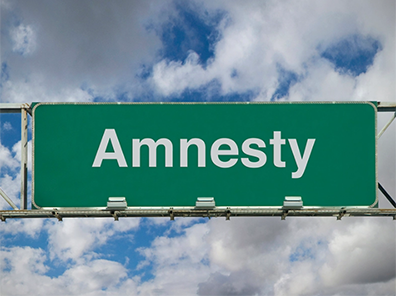
The congressional leadership is trying to use a budgetary process known as “reconciliation” to provide amnesty to at least eight million illegal aliens, as well as significantly increase chain migration. Andrew Arthur, Jason Richwine, David North, and myself have written on the immigration provisions within the House bill. Further delving into the amnesty, there are so many exemptions and waivers to the grounds of inadmissibility that it raises the question: would any grounds of inadmissibility apply to illegal aliens seeking the amnesty?
As a general principle of our immigration law, the burden is on the alien to establish eligibility and overcome a presumption of ineligibility. For example, aliens seeking to enter the country temporarily (nonimmigrants) must prove that they lack immigrant intent, meaning a desire to stay in the United States permanently, by, for instance, showing they have a job or own property in their home country. Aliens seeking to obtain lawful permanent resident status (a green card) must demonstrate that they are admissible, overcoming a presumption that they are inadmissible. Focusing on the grounds of inadmissibility, section 212(a) of the Immigration and Nationality Act includes 10 separate grounds, with some having multiple sub-grounds of inadmissibility. Most aliens seeking a green card must demonstrate that they are not inadmissible under any of these grounds.
The illegal aliens who would benefit from the amnesty do not.
For starters, to qualify for the amnesty the illegal alien must, among other things, demonstrate that he or she is not inadmissible under INA section 212(a)(2), (3), (6)(E), (6)(G), (8), (10)(A), (10)(C), or (10)(D). Setting aside for a moment what these grounds specifically are, the statutory structure of this section implies that those grounds not listed are completely dispensed with for purposes of obtaining a green card through the amnesty.
Specifically, amnestied illegal aliens are exempt from the following grounds of inadmissibility: health related grounds [(a)(1)]; public charge [(a)(4)]; the requirement that the alien will not harm the wages and working conditions of Americans [(a)(5)]; aliens present without admission or parole [(a)(6)(A)]; failure to attend removal proceedings [(a)(6)(B)]; misrepresentation, including falsely claiming U.S. citizenship [(a)(6)(C)]; stowaways [(a)(6)(D)]; aliens subject to civil penalty [(a)(6)(F)]; the requirement of having a visa [(a)(7)]; aliens previously removed [(a)(9)]; guardians accompanying a “helpless alien” [(a)(10)(B)]; and former U.S. citizens who renounced citizenship for tax reasons [(a)(10)(E)].
But the proposed amnesty is even more lenient because it authorizes the Department of Homeland Security (DHS) secretary to waive several of the few grounds of inadmissibility these illegal aliens are subject to. Specifically, the DHS secretary can waive the following grounds: criminal and related grounds [(a)(2)]; alien smugglers [(a)(6)(E)]; student visa abusers [(a)(6)(G)]; and unlawful voters [(a)(10)(D)]. As House Republicans pointed out at Monday’s Judiciary Committee markup of the bill, these waivers are included because they believe the intention of the Democrats is for DHS Secretary Mayorkas to apply them liberally.
So what grounds of inadmissibility are left that are neither exempt nor waivable? The list is short. In order to qualify for amnesty, illegal aliens must only be able to overcome the following grounds of inadmissibility: security and related grounds, including terrorist activity, membership in a totalitarian regime, Nazis, and child soldier recruiters [(a)(3)]; aliens permanently ineligible for citizenship and draft dodgers [(a)(8)]; practicing polygamists [(a)(10)(A)]; and international child abductors [(a)(10)(C)].
With so many grounds of inadmissibility rendered moot, this amnesty is truly structured to ensure that no illegal alien is left behind.
